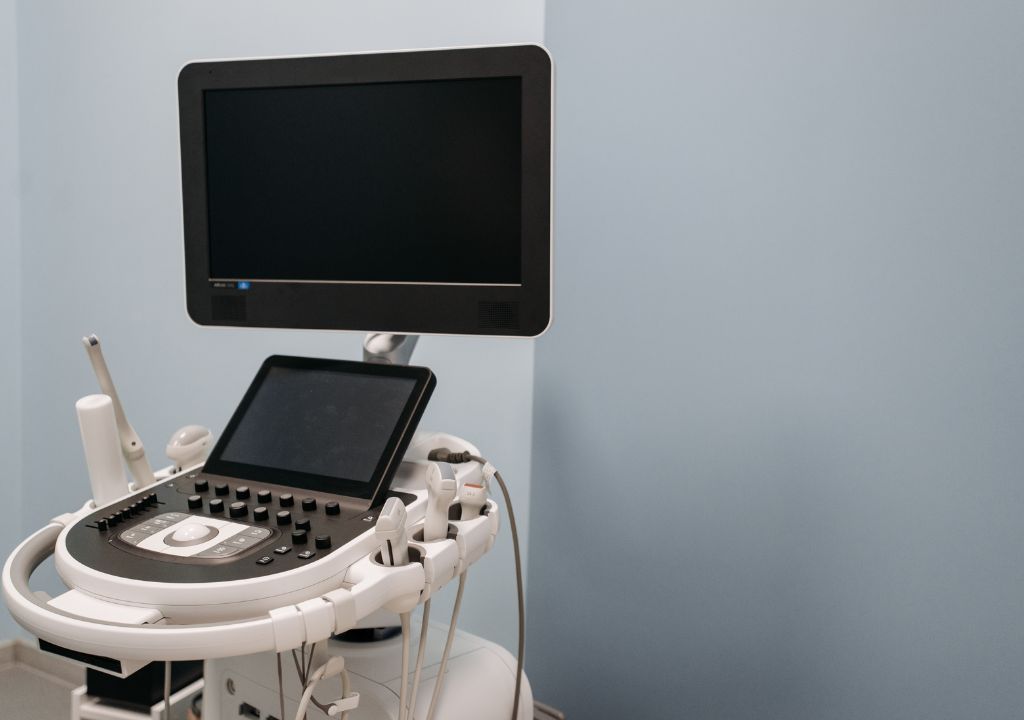When it comes to diagnosing and managing complex health issues in dogs, specialized canine ultrasound is an invaluable tool for veterinarians. This advanced imaging technology provides detailed insights into the abdominal and thoracic regions, allowing for accurate assessments of internal organs and structures. This article explores the importance, benefits, and applications of specialized canine ultrasound for abdominal and thoracic assessments, highlighting how it enhances veterinary care.
Understanding Specialized Canine Ultrasound
1. What is Canine Ultrasound?
Canine ultrasound is a non-invasive imaging technique that uses high-frequency sound waves to create real-time images of a dog’s internal structures. Unlike X-rays, which provide static images primarily of dense tissues, ultrasound excels in visualizing soft tissues and organs. Specialized ultrasound equipment is designed to offer enhanced resolution and detail, particularly useful for assessing specific areas such as the abdomen and thorax.
2. Advanced Technology for Precision
Modern ultrasound systems used for abdominal and thoracic assessments come with advanced features such as high-resolution transducers, Doppler imaging, and sophisticated software. These advancements enable veterinarians to obtain detailed images of internal organs, blood flow, and fluid dynamics, providing a comprehensive view of a dog’s health.
Benefits of Specialized Canine Ultrasound
1. Non-Invasive Examination
One of the major advantages of specialized canine ultrasound is that it is a non-invasive procedure. It does not involve radiation, making it safer for pets compared to X-rays or CT scans. This non-invasive nature allows for repeated imaging if necessary, facilitating ongoing monitoring of chronic conditions without added risk.
2. Real-Time Imaging
Specialized ultrasound provides real-time imaging, which is crucial for assessing dynamic processes within the body. For instance, real-time visualization of the heart’s function or the movement of abdominal organs can provide immediate insights into a pet’s condition. This dynamic capability is particularly useful for evaluating conditions that change with activity or over time.
3. Detailed Soft Tissue Visualization
Unlike X-rays, which are less effective at visualizing soft tissues, ultrasound excels in providing detailed images of soft tissue structures. This capability is essential for diagnosing conditions affecting organs such as the liver, kidneys, spleen, lungs, and heart. High-resolution imaging allows for the detection of abnormalities like tumors, cysts, or fluid accumulation.
Applications of Specialized Canine Ultrasound
1. Abdominal Assessments
a. Evaluating Organ Health
Abdominal ultrasound is instrumental in assessing the health of internal organs. It allows veterinarians to examine the liver, kidneys, spleen, pancreas, and intestines for signs of disease or injury. For example, it can detect liver tumors, kidney stones, or signs of pancreatitis, providing critical information for diagnosis and treatment planning.
b. Diagnosing Fluid Accumulation
Ultrasound is effective in detecting and characterizing fluid accumulation within the abdominal cavity. Conditions such as ascites (fluid in the abdomen) can be diagnosed, and the underlying cause—whether due to heart failure, liver disease, or cancer—can be identified. This helps in guiding appropriate treatment, such as drainage or medical management.
c. Guiding Biopsies and Procedures
In some cases, abdominal ultrasound is used to guide biopsies or other interventional procedures. By providing real-time images of the target area, it ensures accurate needle placement and reduces the risk of complications. This technique is particularly useful for obtaining tissue samples from abnormal masses or lesions.
2. Thoracic Assessments
a. Cardiac Evaluation
In thoracic assessments, specialized ultrasound is crucial for evaluating heart function and structure. Echocardiography, a type of cardiac ultrasound, allows veterinarians to assess the heart’s chambers, valves, and walls. It helps in diagnosing conditions such as dilated cardiomyopathy, mitral valve disease, or congenital heart defects. By examining the heart’s pumping ability and blood flow, veterinarians can determine the best course of treatment.
b. Lung Assessment
Although less common than abdominal assessments, thoracic ultrasound can be used to evaluate the lungs for conditions such as pleural effusion (fluid in the pleural cavity), pulmonary masses, or lung lesions. It is particularly useful in cases where X-rays may be inconclusive or when more detailed imaging is required.
c. Diagnosing Thoracic Fluid
Ultrasound is also effective in identifying and analyzing fluid in the thoracic cavity, such as in cases of pleural effusion. By assessing the type and distribution of the fluid, veterinarians can diagnose the underlying cause, whether it be due to heart disease, infection, or trauma.
Why Choose Specialized Canine Ultrasound?
1. Expertise and Accuracy
Our clinic uses the latest ultrasound technology and employs experienced veterinary professionals trained in specialized imaging techniques. This ensures that each examination is performed with the highest level of expertise and precision. Accurate imaging is crucial for making informed decisions about diagnosis and treatment.
2. Comprehensive Diagnostic Approach
Specialized ultrasound provides a comprehensive approach to diagnostics. By combining abdominal and thoracic assessments, we can obtain a complete picture of your pet’s health. This holistic view allows for more accurate diagnosis and tailored treatment plans.
3. Enhanced Patient Care
Choosing specialized ultrasound means opting for enhanced patient care. The detailed imaging and real-time capabilities of ultrasound contribute to better understanding and management of your pet’s health issues. This leads to more effective treatments, improved outcomes, and ultimately, a higher quality of life for your canine companion.
Conclusion
Specialized canine ultrasound is a powerful tool for assessing abdominal and thoracic health in dogs. With its non-invasive nature, real-time imaging capabilities, and detailed visualization of soft tissues, it offers numerous benefits for accurate diagnosis and effective treatment. Whether evaluating organ health, diagnosing fluid accumulation, or assessing cardiac function, specialized ultrasound enhances veterinary care and provides valuable insights into your pet’s health. By choosing specialized canine ultrasound, you ensure that your pet receives the best possible care and attention for their well-being.



